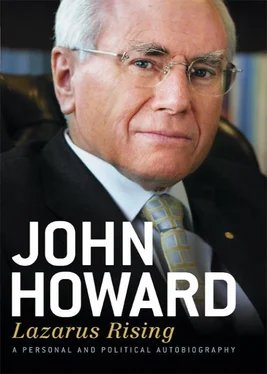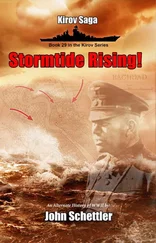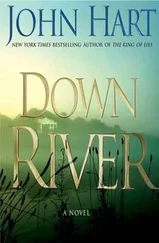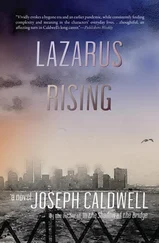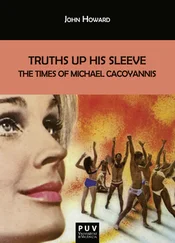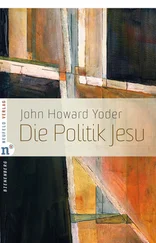1 ...7 8 9 11 12 13 ...53 When education became ‘free, compulsory and secular’ in the 1860s, Australian Catholics resolved to maintain their own school system, at enormous ongoing cost both to parents and the faithful. There was no government help for them. The prevailing view, in a much more sectarian age, was that those who sent their children to Catholic schools should bear the full cost of that choice: the free public system was available to Catholics and Protestants alike. As the decades rolled on, Catholic resentment grew, especially as, there being 20 per cent or so of the school-age population in Catholic schools, the state was relieved of a large financial burden.
By the 1960s attitudes had changed. There was more recognition of the immense sacrifice made by Catholics to keep their education system; sectarianism had begun to crumble and there was a realisation that state schools would not cope if the Catholic system collapsed.
Menzies, the self-styled ‘simply Presbyterian', became persuaded of the justice of the Catholic argument. In the 1963 election campaign he promised money for all schools in Australia to construct science blocks. Inspired politics, it was also cultural balm, and aided the decline of sectarianism. This symbolic breakthrough led over time to extensive funding of independent schools in Australia, with the greatest help going to those who were in most need.
The Menzies thrust was not easily accepted throughout the Liberal Party and internal debate continued to rage. Early in 1964 I pushed a pro-state aid motion through the Youth Council, which struck real turbulence. The Liberal leader in New South Wales (later premier), Bob Askin, remained very sensitive about opposition to the policy within the party and was still to summon the courage to assert the merits of it at a state level in the way that Menzies had federally. During a telephone conversation with me, Askin remonstrated about the pro-state aid position of the Young Liberals, even musing that perhaps the Young Liberals might have to be closed down if they continued to cause trouble. That did not change the Youth Council’s view.
Askin was an earthy and instinctive politician who loved horseracing, rugby league and card playing. He won four elections for the NSW Liberals, far ahead of any other Liberal leader in that state.
The 1963 election was a real triumph for Menzies. He called it a year early and increased his slender majority of two to 22. For me, the personal high of that election was the victory of Tom Hughes QC in the electorate of Parkes. I was still living in Earlwood, which was in this electorate, and was Tom’s campaign director. He needed a swing of some 6 to 7 per cent, something he did not believe that he would achieve. It was a classic grassroots campaign, attracting much high-profile attention.
Tom Hughes came from a well-known family of Sydney’s eastern suburbs. He had served in the RAAF in World War II. He was intelligent and engaging. I took an instant liking to him, and we have remained friends ever since. His Bellevue Hill address did not bother the Liberal locals in Parkes. They liked the way in which he quickly adapted his speaking style from the courtroom to the back of a truck.
Tom had close links with the Packer family, which led to him being dubbed ‘Packer’s pea for Parkes'. He enlisted their help to produce a local campaign newspaper, called the Parkes Examiner. I spent several hours, a week out from the election, in the office of the now defunct magazine the Bulletin, with Clyde Packer, elder brother of Kerry, Tom Hughes and Tom’s younger brother, Robert, working on the newspaper. Robert was at that time quite an accomplished cartoonist. Clyde Packer’s editorial skill did wonders with the copy written by Tom and me.
The incumbent Labor member for Parkes, Leslie Haylen, had a left-wing reputation. He had visited China, and we decided on a cartoon which depicted Haylen dancing arm in arm with the Chinese leader, Mao Zedong. They were doing the ‘Peking two-step'. This was 1963 after all; the Cold War was still in full swing, and consorting with the Chinese communist leadership was not calculated to impress middle Australia.
The 1963 election took place under the shadow of the assassination of President John F. Kennedy. ‘Where were you when Kennedy was assassinated?’ forever and a day would become a question asked of my generation. I was at home in Earlwood, about to leave and meet Tom Hughes in the Campsie shopping centre for some campaigning. My brother Bob telephoned me at about 8.30 am, and said simply, ‘Kennedy has been shot dead in Dallas.’ What more could be said! When I arrived at the campaign headquarters on the way to the Campsie shopping centre, volunteers had already assembled to help with pamphlet distribution. One of them, Roddy Meagher, a brilliant barrister who went on to become a much-admired judge of the Court of Appeal in New South Wales, speculated about the possibility of the Russians taking advantage of the situation.
Whatever one’s politics, and whatever one’s opinion of the quality of Kennedy’s presidency at that time, it was impossible to shake the view that a remarkably talented and attractive young president, offering much hope for the future, had been cut down before he really had a chance to prove himself.
In 1964, as NSW Young Liberal leader, I was a delegate to the federal council meeting of the party in Canberra in April. It was a memorable event for me, as it included my one and only meeting with Sir Robert Menzies. It was at the traditional cocktail party for federal council delegates at the Lodge hosted by the Prime Minister. He was a big man, with a commanding presence, who chatted amiably with the six Young Liberals present. The great man demonstrated his reputed passion for martinis by mixing some for his guests.
Thirty-two years later, on my first weekend at the Lodge as Prime Minister, Janette and I invited Menzies’ daughter, Heather Henderson, and her husband, Peter, over for a drink. We mixed and drank martinis in memory and honour of her late father. I have not had one since; I don’t like them, shaken or stirred, but proper respect had been paid.
There was an unhealthy air of smug self-satisfaction at that 1964 Federal Council meeting. Several speeches, including one from Menzies himself, suggested that the Liberal Party would remain in office indefinitely. As things turned out it was to be more than eight years before the party finally lost, but nonetheless the tone seemed wrong. Perhaps I was not sufficiently attuned to the ‘natural party of government’ sentiment amongst Liberals from Victoria. Henry Bolte had been Premier since 1955 and the Liberals would hold office in that state for a further 18 years.
By contrast, Labor seemed to have an iron grip on power in New South Wales. Moreover, there had been a very heavy swing against the Liberal Party in New South Wales at the 1961 federal election, prior to the 1963 resurgence. By contrast, again despite the recession, the Liberal Party had given no ground to Labor at the 1961 election in Victoria. This had been due, overwhelmingly, to the great bulk of DLP preferences flowing to Menzies.
The DLP emerged from the great Labor split of the mid-1950s, which played a major role in keeping Labor from office until 1972. The split was caused by a clash between, on the one hand, Labor trade unionists and branch members worried about communist influence in the unions and, on the other hand, the rest of the ALP, who regarded the activities of those worried about communist influence as having ulterior motives, subversive to the true interests of the Labor Party.
Those concerned about communist influence banded together in what were called industrial groups, in turn strongly supported by a Catholic lay organisation known as the Movement, led by B.A. (Bob) Santamaria, certainly the most influential person in post-World War II politics never to serve in parliament. Possessed of high intelligence and strong Catholic beliefs, he was a compelling and articulate critic of communism within both the ALP and elsewhere. He was a person for whom I developed enormous respect.
Читать дальше
